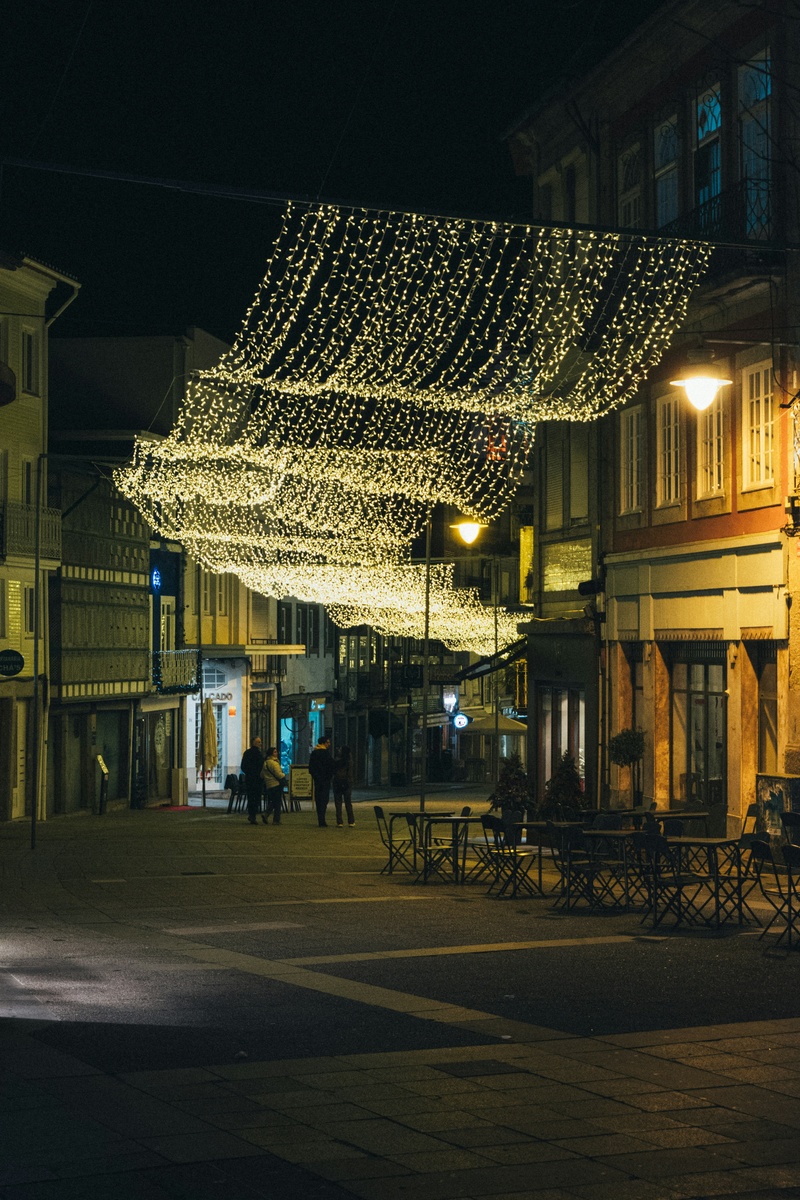The festive season in Portugal and Spain is a magical time, filled with deep-rooted traditions, vibrant celebrations, and a strong sense of community. Both countries, predominantly Catholic, bring their unique cultural flavors to Christmas, blending religious observances with local customs. Here, we explore some of the most cherished Christmas traditions in these Iberian neighbors.
Portugal: A Celebration of Faith and Family
“Consoada” and Christmas Eve Dinner
In Portugal, Christmas Eve is the highlight of the festive season. Families gather for "Consoada," a traditional dinner typically featuring "bacalhau" (salt cod) served with boiled potatoes, cabbage, and other vegetables. Desserts play a starring role, with a spread that includes "rabanadas" (similar to French toast), "bolo-rei" (king cake), and "sonhos" (deep-fried doughnuts).
Midnight Mass
After dinner, many families attend the "Missa do Galo" (Rooster's Mass), a solemn midnight church service. This tradition commemorates the birth of Christ and often includes a procession of the baby Jesus.
Nativity Scenes
Portugal is renowned for its elaborate nativity scenes, known as "presépios." These displays can be simple or grand, often featuring not only the Holy Family but also scenes of rural life. In some regions, live nativity plays bring the story of Christmas to life.
"Janeiras"
As the Christmas season extends into January, groups of people sing "Janeiras" (New Year’s songs) from house to house. This charming custom is a way of wishing neighbors good fortune for the year ahead.
Spain: A Time for Joy and Tradition
Nochebuena and the Feast
In Spain, the Christmas Eve feast, or "Nochebuena," is a grand family affair. The menu varies by region, but it often includes roast lamb, seafood, and traditional sweets like "turrón" (nougat) and "polvorones" (crumbly almond cookies).
Midnight Mass and the “Caga Tío”
Following the feast, families attend "La Misa del Gallo" (Mass of the Rooster). In Catalonia, a unique tradition known as "Caga Tío" (the pooping log) takes center stage. Children decorate a wooden log with a smiling face, feed it treats leading up to Christmas, and then ceremoniously "beat" it with sticks to encourage it to "poop" presents.
El Día de los Santos Inocentes
On December 28, Spain celebrates El Día de los Santos Inocentes, akin to April Fool’s Day. People play practical jokes and pranks, adding a lighthearted touch to the season.
Three Kings’ Day
While December 25 is important, the pinnacle of Christmas in Spain is "El Día de los Reyes Magos" (Three Kings' Day) on January 6. Children eagerly await the arrival of the Three Wise Men, who bring gifts. Parades, known as "cabalgatas," take place on January 5, featuring lavish floats and a shower of sweets for spectators.
Shared Traditions
Christmas Markets
Both Portugal and Spain host charming Christmas markets, offering handmade crafts, festive treats, and a chance to soak in the holiday spirit. From Lisbon’s Winter Wonderland to Barcelona’s Fira de Santa Llúcia, these markets are a feast for the senses.
Lights and Decorations
Cities across both countries light up with dazzling displays of Christmas lights. From Madrid’s Gran Vía to Porto’s Avenida dos Aliados, strolling through the illuminated streets is a cherished pastime.
Epiphany Celebrations
The Christmas season officially concludes with Epiphany on January 6. In Portugal, this day is marked with "Bolo-Rei," a cake with hidden surprises, while in Spain, the arrival of the Wise Men brings the final round of festivities.
Christmas in Portugal and Spain is a beautiful blend of faith, family, and festivity. From midnight masses and sumptuous feasts to unique customs like "Caga Tío" and "Janeiras," these traditions reflect the warmth and joy that define the holiday season. Whether you’re exploring the bustling Christmas markets or partaking in a family feast, the spirit of Christmas shines brightly in every corner of the Iberian Peninsula.
Don't Just Travel,
Experience it!
You may also be interested in…
So that we can best respond to your request and start studying your project, we thank you for agreeing describe below.
